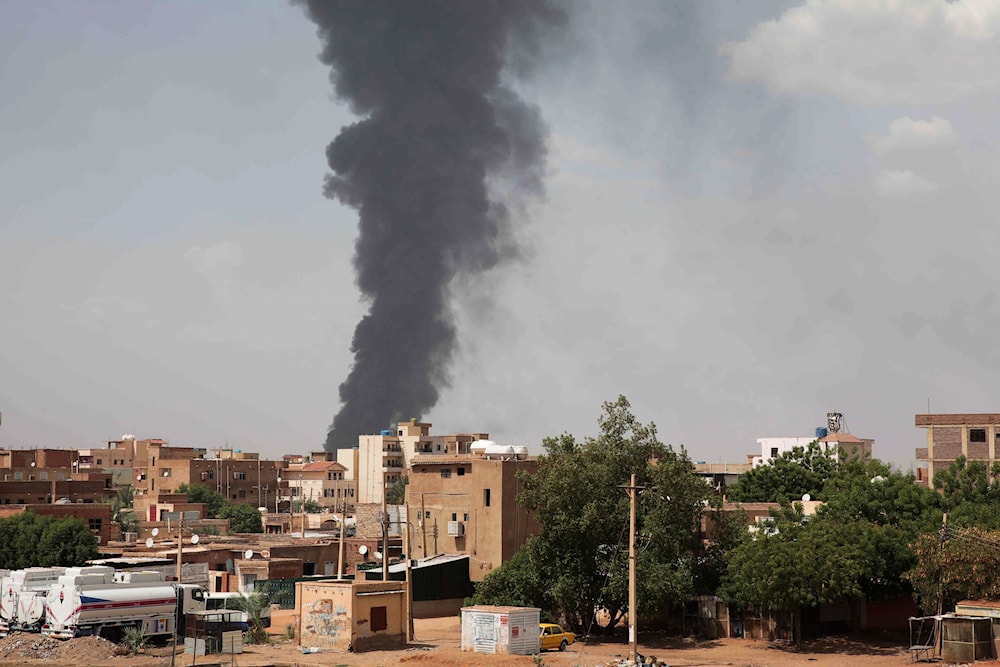The Sudan war has cost millions of lives after a year of conflict

The ongoing war in Sudan has caused nearly 10 million people to flee their homes within the country and the region.
-
Smoke rises over Khartoum, Sudan, June 8, 2023. (AP)
More than a year after the start of a devastating war between Sudanese forces and the paramilitary Rapid Support Forces (RSF), Sudan is battling the world’s worst famine and refugee crisis.
The war has caused great destruction and death. At least 16,000 people have lost their lives, millions more have fled at home and abroad, and the health system has been destroyed.
The International Organization for Migration (IOM) reports that over 7.7 million people have been internally displaced since the conflict began. In addition, over 2 million people have sought refuge in neighboring countries. 55 percent of these displaced people are children under the age of 18.
According to UNICEF, Sudan has the highest number of displaced children in the world, with 5 million affected. The IOM has pointed out that the majority of these displaced people come from Khartoum (36%), South Darfur (20%) and North Darfur (14%), the areas most affected by the war.
The UN Office for the Coordination of Humanitarian Affairs (OCHA) paints a grim picture of the deteriorating situation in Sudan. Women, children and entire families are having to flee and leave their homes and belongings behind. OCHA also reports that Sudan is currently facing the worst food shortage in two decades.
The head of the World Health Organization (WHO), Tedros Adhanom Ghebreyesus, stressed the severity of the crisis, pointing out that one in five Sudanese people are affected by emergency-level food shortages. He stressed that 755,000 people are at risk of catastrophic hunger and 25.6 million are facing acute food shortages.
About 8.9 million Sudanese children are suffering from acute food shortages and disease, said UNICEF Representative in Sudan Mandeep O’Brien, while UNICEF Executive Director Catherine Russell described Sudan as “one of the worst places in the world” for children.
Famine as a weapon
In April last year, Sudan descended into chaos as tensions erupted between the country’s military and paramilitary Rapid support troops (RSF), open conflicts broke out in the capital Khartoum and other regions.
United Nations human rights experts warned that famine was imminent as humanitarian aid was blocked and the harvest season was disrupted by the war. They mentioned that more than 25 million civilians in Sudan, as well as those who have fled the country, are starving and in urgent need of humanitarian assistance.
A report by the Clingendael Institute think tank last month estimated that around 2.5 million people in Sudan could die of hunger by the end of September. Around 15 percent of the population in the Darfur and Kordofan regions are expected to be worst affected.
The independent experts stressed that local efforts to respond to Sudan’s hunger crisis are being hampered by unprecedented violence and targeted attacks on civil society and local aid workers. They added that dozens of activists and local volunteers have been arrested, threatened and prosecuted in recent weeks.
They stated that “targeting humanitarian workers and local volunteers is undermining the relief effort and putting millions of people at further risk of starvation.” They also noted that “local aid workers are risking their health and lives working across the front lines.”
The experts also accused the warring parties in Sudan of using hunger as a weapon against the civilian population.



